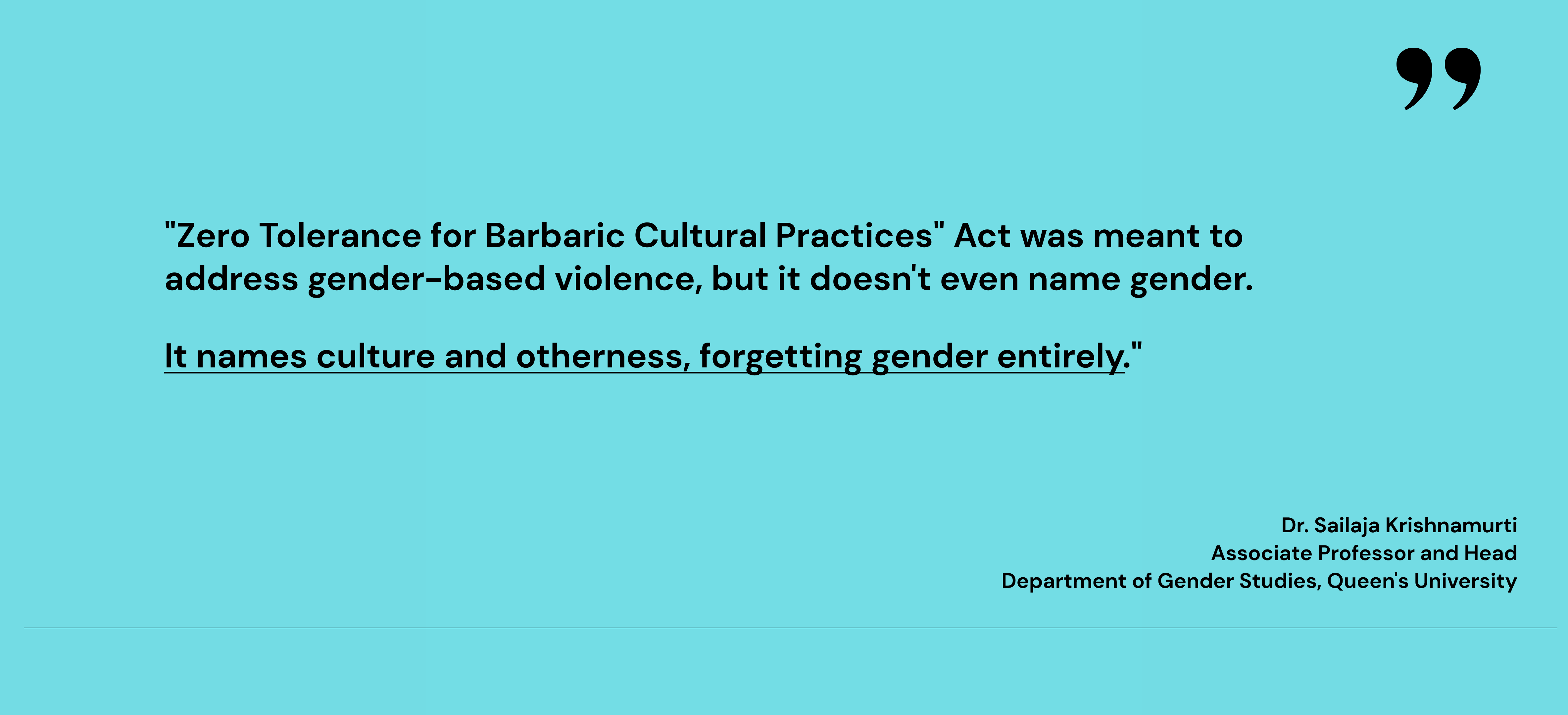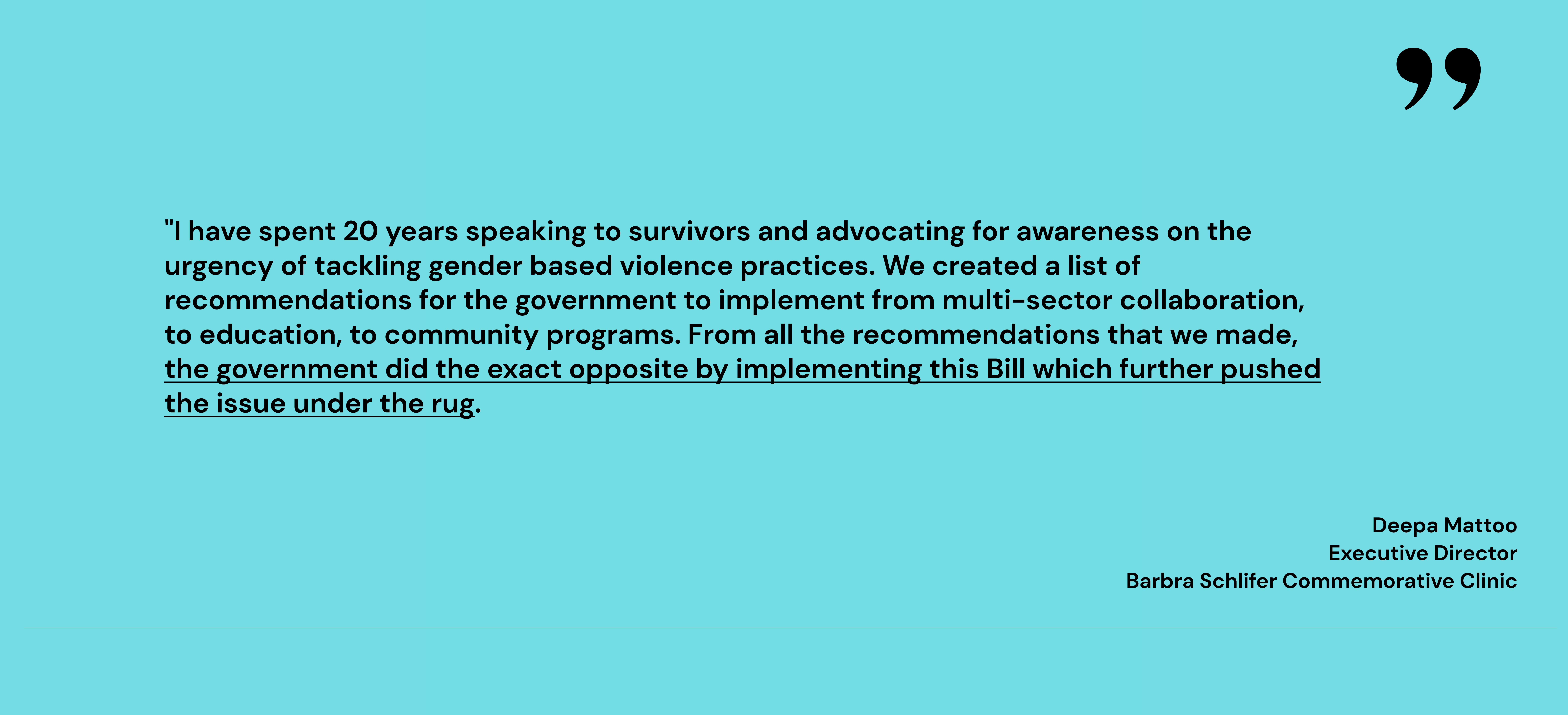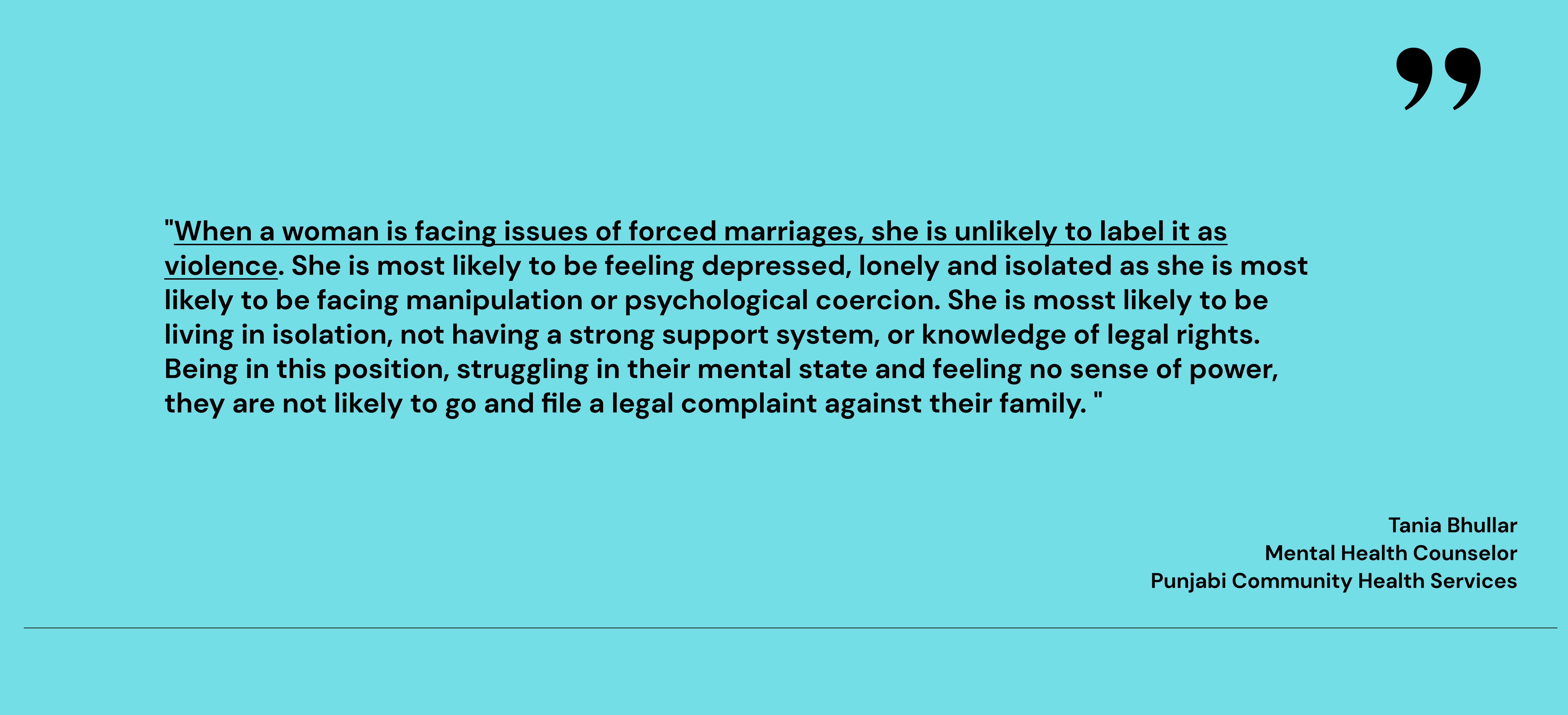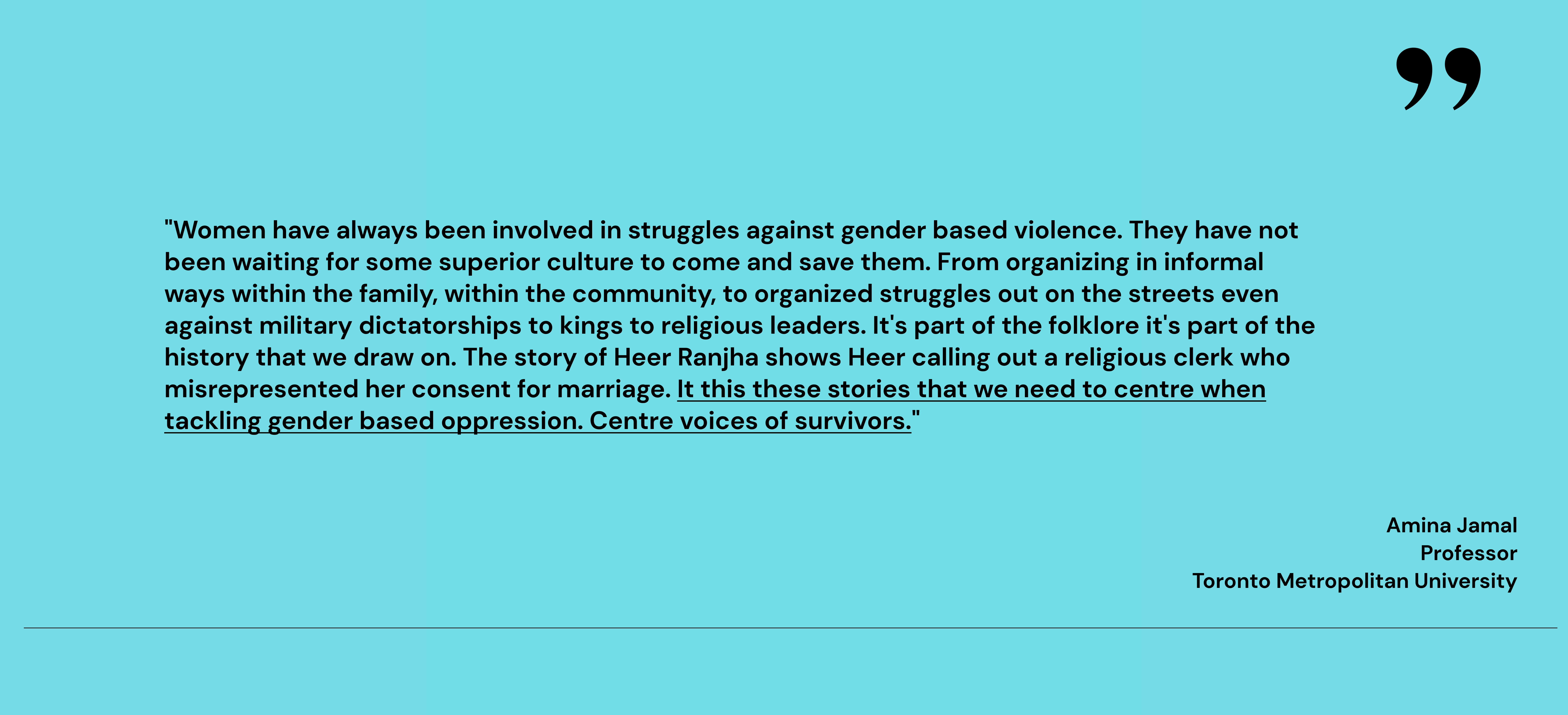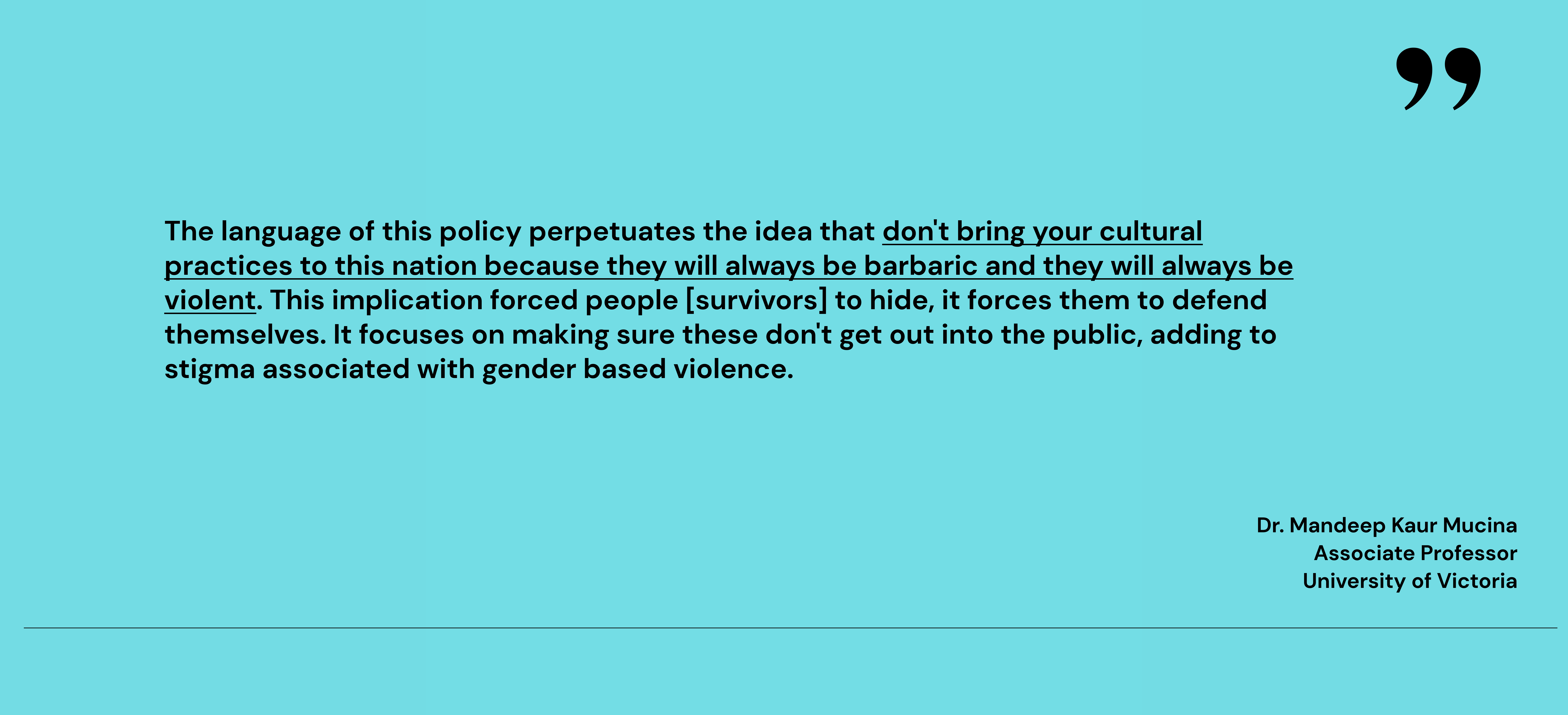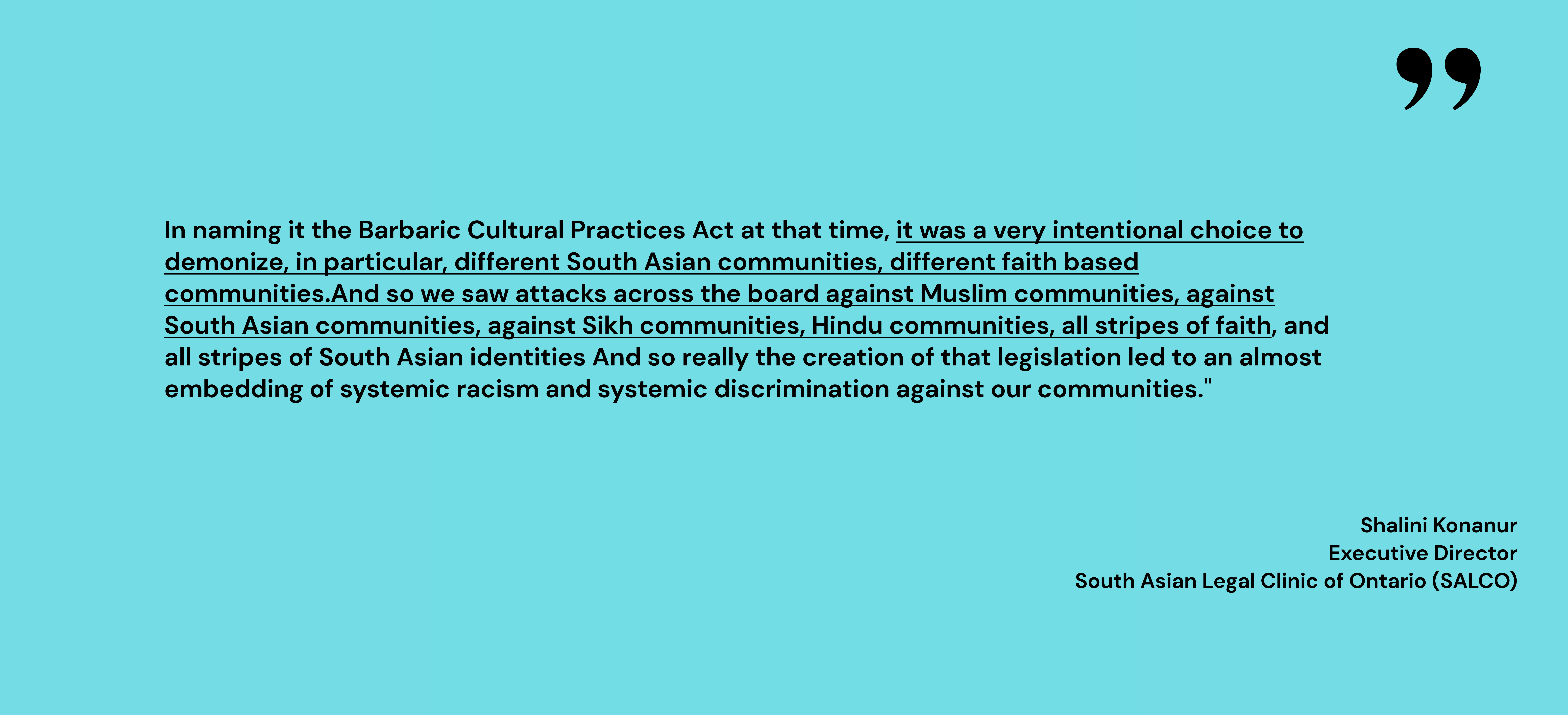About the Policy
In 2015, the Conservative Federal government at that time, Canada introduced the ‘Zero Tolerance for Barbaric Cultural Practices Act”, to “counter harmful cultural practices.” This law amended three existing legislations, criminalizing instances of polygamy and forced marriages. The changes brought were the following:
- Immigration and Refugee Protection Act The Act made practicing polygamy grounds for inadmissibility.
- Criminal Code Forced marriage deemed as an indictable offense punishable by imprisonment for up to five years. Child marriage (under the age of 16) – an indictable offense punishable by imprisonment for up to five years.”
- Civil Marriage Act Set a minimum marriage age of 16, which is lower than the typical minimum age of 18 in most countries.
After tireless efforts of activists, politicians, activists, grassroots organizers, and lobbying from within the community, name of the Act was changed in 2017 because of racist terminologies used in the original name.
Advocates who have worked with victims of forced marriage have been very critical of the law as a barrier to these victims. Victims from immigrant and racialized communities are much less likely to come forward with their complaints of forced marriage if there is criminalization of their families involved. Evidence from legal clinics indicates that victims are in greater danger of forced marriage as a result of this policy as they are even less likely to report their families for fear of criminalization.
Gender-based violence is a multifaceted problem deeply entrenched in power dynamics found throughout societies. This type of violence is rooted in a patriarchal system that normalizes male dominance and power over women and other gender minorities. This system shapes societal norms, values, and practices that perpetuate gender inequalities and violence.
Further, systemic issues like racism, poverty, and ableism create barriers that contribute to gender-based violence. Certain communities, like Indigenous women and those in rural areas, are disproportionately affected.
The impact of the problematic terminology used in the original Bill, and the changes it brought in the legal structure, still continue to negatively impact racialized survivors of gender based violence. As Deepa Mattoo, lawyer, activist and Executice Director of the Barbra Schlifer Commemorative Clinic that supports survivors of gender based violence narrates, “While originally touted as an opportunity to enhance protection for girls and women against the “foreign” horrors of polygamy, early and forced marriage, and “honor”-based killings, [Bill S-7] instead fanned the flames of xenophobia on a mass level, failed to protect women, and, created a higher risk of harms for women who are victims of gender- or family-based violence”.
Impact of the Policy
The ‘Zero Tolerance for Barbaric Cultural Practices Act has had a profound impact on individuals and communities. The policy:
- culturalized violence
- pushed the issue deeper underground,
- targeted immigrant communities
- reinforced cultural racism,
- projected colonial discourse and
- ineffectively criminalized gender-based violence.
In effect, all of these impacted survivors in a negative way. Click on the images below to explore each impact in depth.
Cultural Racism
Cultural racism is a form of discrimination that targets individuals based on their cultural or ethnic backgrounds.
For survivors of gender-based violence (GBV), cultural racism can compound the challenges they face.
It can lead to stigma, isolation, and mistrust of support systems, making it harder for survivors to seek help.
Survivors from marginalized communities may fear judgment or misunderstanding due to cultural biases.
Cultural racism also affects access to resources and support, leaving some survivors with fewer options.
Hidden Problem
Legal clinics report a significant drop in reported cases related to forced marriages and polygamy, but that doesn’t mean it’s gone. It’s hidden.
When cases do surface, law enforcement often lacks the knowledge to handle them effectively. Survivors, further, are not provided with resources or a pathway in place to create a life outside of violent conditions.
This policy has created a dangerous gap in protection for vulnerable individuals.
Immigrant Problem
This Act has been called out for targetting Muslim and South Asian communities. The legislature not only perpetuates Islamophobic and racist discourse but also significantly impact survivors’ from seeking justice and support.
Islamophobic stereotypes have real impact on Muslim survivors seeking justice. A service provider may patronizingly assume a hijab wearing woman is submissive or a lawyer may unfairly see cases of immigrant women from certain countries. The complexities of gender-based violence and its impact on Muslim women cannot be ignored.
Muslim women seeking support from gender based violence have faced instances where their religion is blamed for the violence they are facing. This type of thinking reiterates a culture of victim blaming, impactingthe survivors’ understanding of violence and how they percieve their reality.
Culturalizes Violence
The culturalization of violence not only perpetuates harmful stereotypes but also has profound effects on survivors of gender-based violence. When violence is attributed solely to culture, it becomes a barrier to survivors seeking the support they desperately need. Here’s how:
Stigmatization: Cultural stereotypes can stigmatize survivors, making them feel ashamed or isolated. They may fear judgment from their community or reluctance from service providers who don’t fully understand their cultural context.
Lack of Understanding: Misconceptions surrounding cultural practices can hinder support. Service providers who are unfamiliar with a survivor’s culture may struggle to comprehend the unique dynamics at play, making it difficult to offer effective assistance.
Silencing Survivors: When violence is labeled as a cultural norm, survivors may be discouraged from speaking out or seeking help. They might internalize the belief that their suffering is an inherent part of their culture, making them more vulnerable to further abuse.
Barriers to Legal Action: Culturalization can complicate legal proceedings. Survivors may face additional challenges when attempting to pursue justice, as cultural stereotypes may impact how their cases are perceived within the legal system.
Saviourism
In the essay “Can the Subaltern Speak?” (1985), Gayatri Chakravorty Spivak coined the phrase “white men saving brown women from brown men.” This concept highlights the historical tendency of colonial narratives to portray the rescue of women from other cultures as a noble act.
This oversimplified narrative can perpetuate harmful stereotypes and ignore the complex realities faced by women in diverse communities.
The reality is that women from marginalized communities are strong, resilient, and fully capable of advocating for themselves and their rights.
Rather than imposing external “saviors,” it’s essential to empower individuals and communities to address gender-based violence within their cultural contexts.
Criminalizing GBV
Criminalizing violence might seem like a solution, but the reality is far more complex.
For many survivors of forced marriages, seeking support isn’t about punishing their families; it’s about ending the violence they endure.
Fear of immigration status, lack of legal knowledge, language barriers, financial constraints, health concerns, family dynamics and other systemic barriers can deter survivors from reporting abuse.
Survivors deserve safety and support without feeling like they have to choose between their families and their well-being.
Podcast Series
The “Zero Tolerance for Barbaric Cultural Practices Act” Podcast Series is a thought-provoking and in-depth exploration of the impact of a contentious policy in Canada. Over six episodes, this series engages with service providers, academics, and legal experts to critically examine the negative consequences of the policy, particularly its effect on gender-based violence and the stigmatization of certain cultural practices. The series is part of the “Policies that Perpetuate Systemic Racism” project, supported by the Canada Race Relations Foundation, and offers insightful discussions, expert perspectives, and progressive ways forward.
Episode List
Episode 1 – Understanding “Culture”: This episode initiates the series with an exploration of what ‘culture’ entails and how its interpretation influenced the naming of the legislation. Featuring discussions with Dr. Amina Jamal, Dr. Mandeep Mucina, and Dr. Sailaja Krishnamurti, the episode reveals the continuation of colonial perspectives in understanding cultures and the ensuing stereotypes.
Episode 2 – Culturalizing Gender-Based-Violence: Frontline workers share their experiences regarding the impact of culturalization of violence. The episode examines how stereotypes affect entire communities, especially survivors, influencing their access to support.
Episode 3 – Understanding Gender-Based-Violence: This episode explores the social, historical, and power structures that perpetuate gender-based violence, enhancing understanding to aid survivors better.
Episode 4 – Criminalizing Gender-Based Violence (I): Engaging with legal experts, this episode investigates the effects of criminalizing gender-based violence, focusing on the challenges faced by immigrant women within the legal justice system.
Episode 5 – Criminalizing Gender-Based-Violence (II): Continuing the discussion from Episode 4, this episode further explores the disempowering effects of criminalization on survivors and the broader implications of systemic racism and community stigmatization.
Episode 6 – Ways Forward: The final episode offers a hopeful outlook, discussing best practices for supporting survivors and strategies for systemic changes. It emphasizes the importance of prioritizing survivor narratives and needs
Acknowledgements
We thank the valuable guests and esteemed figures for dedicating their time and energy to this podcast. Acknowledgements:
Dr. Amina Jamal: Dr. Amina Jamal, an Associate Professor at Toronto Metropolitan University, Ontario, focuses on the interplay of gender, race, religion, and sexuality, especially in South Asian contexts. Her work critically examines feminist and progressive Muslim politics, contributing to discussions on honor-related violence and the experiences of Muslim women in the diaspora.
Dr. Sailaja Vatsala Krishnamurti, PhD, is the Head, Department of Gender Studies and Associate Professor at Queen’s University, Ontario. Her work takes a critical race feminist approach to religion and representation in the South Asian diaspora and in transnational cultures.
She is the author of several refereed articles and book chapters and is co-editor of Relation and Resistance: Racialized Women, Religion and Diaspora. She is committed to an anti-racist, anti-colonial feminist praxis that drives her work as a teacher and mentor. She has extensively taught and written on issues related to racialized women from an anti-colonial and anti-racist feminist lens.
Dr. Mandeep Mucina: Dr. Mandeep Mucina, Associate Professor and Interim Director at the School of Child and Youth Care, University of Victoria, is known for her impactful work on family and gender-based violence, particularly within South Asian communities. Her research encompasses honor-related violence and intergenerational trauma, shedding light on the complexities and challenges faced by racialized and immigrant communities.
Tania Bhullar: Tania Bhullar is a Counselor at PCHS in Calgary, with a master’s in psychology from the University of Calgary. Having resided and worked across various regions, Tania has cultivated a distinctive perspective on cultural intricacies. Her international experiences have broadened her capacity to engage with individuals and families from the South Asian community.
Deepa Mattoo: Deepa Mattoo is a highly esteemed figure in the field of gender-based violence, excelling as a lawyer and Adjunct/Visiting faculty at the Faculty of Law, University of Toronto. As the Executive Director of the Barbra Schlifer Commemorative Clinic, she plays a vital role in providing legal aid and counseling to survivors. Deepa’s dedication is evident in her research, advocacy, and training service providers to support survivors of forced marriage and gender-based violence, addressing issues of equity and racism. Her expertise has been invaluable in ensuring a fair and just approach to policy challenges.
Shalini Konanur: Shalini Konanur, Executive Director and senior lawyer at the South Asian Legal Clinic of Ontario, is renowned for her advocacy in areas of racism, discrimination, and gender-based violence, particularly in the context of forced marriages within immigrant communities. A 1998 graduate of Osgoode Hall Law School, Shalini has contributed her expertise to various levels of government and international bodies, including the United Nations.
Sabrine Azraq: Sabrine Azraq is the National Legal Services Coordinator for the first-ever legal services coordination program geared specifically to Muslim women in Canada. Sabrine also simultaneously manages CCMW’s Addressing barriers for Muslim women and girls facing GBV project which provides services coordination for Muslim women and girls facing GBV.
Animated real-life stories
Watch these animated stories bringing to life the experiences of survivors of gender-based violence impacted by this policy.
Video coming soon
Emma’s Story
Video coming soon
Lina’s Story
Real Life Stories
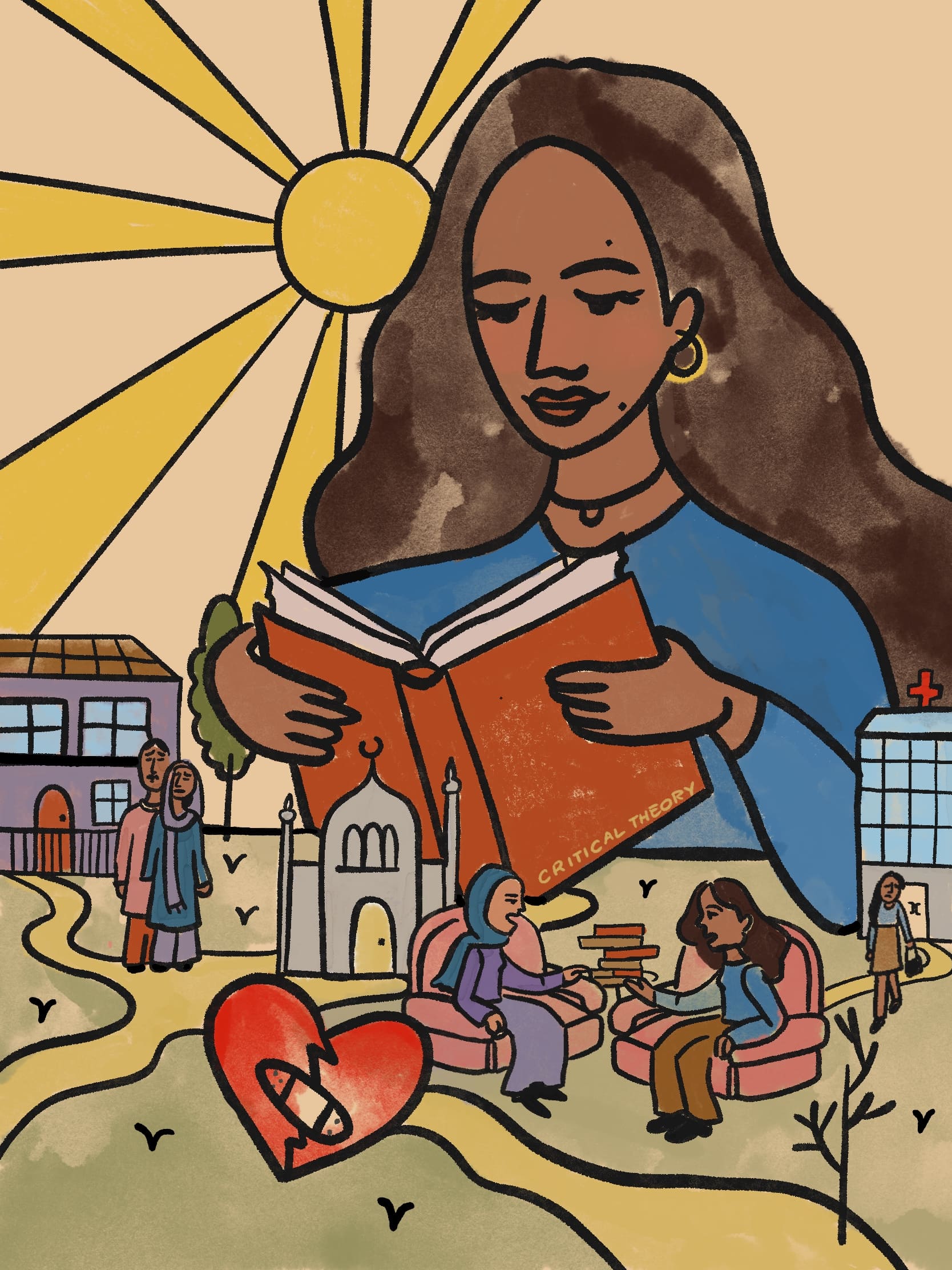
Tasnuva’s Story
Systems always fail me. As a neurodivergent individual and executive dysfunction, I thrive off having systems and structures in place.
Yet – because of all my intersecting identities, the systems and structures in place, just don’t work for me. I’ve spent my life questioning, breaking, disrupting, resisting, brainstorming, prototyping, designing, and creating structures for every aspect of my life to serve my brain.

The weight of my loneliness
Listening to a song on the radio opened the floodgates that had been brimming for the last few hours. I was thinking of a rare sweet moment from my childhood. My sister and I were staying over at my grandmother’s house for a few nights, and she showed us the box of video cassettes of a historical series on a poet she had been watching. My sister and I became obsessed with the series and binged it, probably a first for both of us. When we went home, I fished out the collection of his poetry and she, who was not known for being very literary before that day, and I quoted his couplets at each other in every situation where we could.
Effective Approaches Glossary
Instead of culturalizing violence and merely criminalizing it without putting effective measures to support survivors in place, we must adopt comperehsive, multi-pronged approaches that are trauma-informed, survivor-centric, and intersectional. The following are some strategies and initiatives that have proven to be effective in prioritizing the well-being of survivors while working to prevent gender-based violence.
To effectively combat gender-based violence, it’s essential to address the systemic barriers that disproportionately affect women from marginalized communities.
Furthermore, allocating resources for education, raising awareness, and enhancing community support services are pivotal steps in these approaches.
All services and support created for survivors must be also be culturally specific, trauma informed, survivor centric and intersectional to ensure it is non-judgemental, empowering and inclusive.
Explore our glossary below to learn about these concepts in depth.
Intersectionality
An intersectional approach recognizes that individuals may experience multiple forms of oppression or discrimination simultaneously, such as those related to gender, race, class, sexuality, disability, and more. It acknowledges that these intersecting identities influence a person’s experiences and vulnerabilities. An intersectional approach seeks to address the complex and interconnected factors that impact an individual’s well-being, ensuring that support and solutions consider the full range of their experiences and challenges.
Culturally specific support
Culturally specific support refers to assistance or interventions designed with a deep understanding of and tailored to the unique cultural experiences, values, beliefs, norms, and needs of a particular cultural or ethnic group. Such support acknowledges and respects the differences and individualities of various cultural communities.
Trauma-informed
A trauma-informed approach is a framework that recognizes the widespread impact of trauma on individuals and communities. It involves understanding the effects of trauma, creating environments that prioritize safety and trust, and responding to individuals with sensitivity and empathy. This approach seeks to avoid re-traumatization and promotes healing by acknowledging the past experiences of trauma that many individuals may have endured.
Survivor-centric
A survivor-centered approach places the needs, experiences, and choices of survivors at the forefront of interventions and support services. It emphasizes empowering survivors to make decisions about their own healing and recovery, respecting their autonomy and agency. This approach aims to provide survivors with resources, information, and options while fostering a safe and non-judgmental environment in which their voices are heard and their well-being is prioritized.







